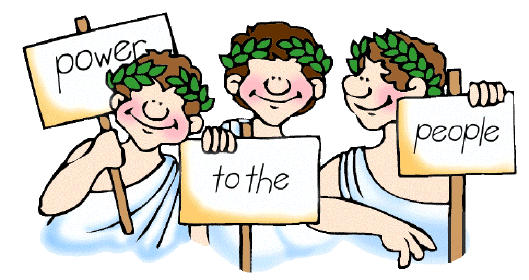Ever noticed how democracy is described as if it equals justice and virtue?

The other day a prominent columnist for an American newspaper bewailed “our current democratic travails” and urged that we “be stubborn about the sacredness of truth.”
By travails, he meant the usual:
** “illiberal democracy” in Poland and Hungary.
** America’s Louis IV or the I-am-the-state presidency of Donald Trump.
** Bigots winning elections – or at least part of the argument – in Italy, Austria, Sweden, the Netherlands, France.
** Russia, Egypt and Turkey’s pretence of democratic accountability.
** Growing intolerance all over the world towards universal values and truths, as laid out by philosophy, all religions, the American and many other constitutions, and in the founding charters of international organisations.
So, is democracy interchangeable with truth, justice and virtue?
Or perhaps, more to the point, can the fact of having democracy or a democratic apparatus ensure justice and civic virtue?
Not at all.
How can democracy be justice or virtue when it really only provides free citizens one thing – the right to help guide their destiny? This might come about by citizens being able to pick their representatives or vote on a referendum question.
What democracy cannot guarantee is the virtuousness or justice of its choices and motivations.
Unsurprisingly then, in Plato’s Republic, Socrates is dubious about democracy’s virtues, other than its one basic characteristic – freedom. Consider the following dialogue from the Republic. “I” is Socrates, the “he” is Socrates’ interlocutor:
In the first place, are they not free; and is not the city full of freedom and frankness–a man may say and do what he likes?
‘Tis said so, he replied.
And where freedom is, the individual is clearly able to order for himself his own life as he pleases? Clearly.
Then in this kind of State there will be the greatest variety of human natures?
There will.
This, then, seems likely to be the fairest of States, being like an embroidered robe which is spangled with every sort of flower. And just as women and children think a variety of colours to be of all things most charming, so there are many men to whom this State, which is spangled with the manners and characters of mankind, will appear to be the fairest of States.
Yes.
Yes, my good Sir, and there will be no better in which to look for a government.
Why?
Because of the liberty which reigns there – they have a complete assortment of constitutions; and he who has a mind to establish a State, as we have been doing, must go to a democracy as he would to a bazaar at which they sell them, and pick out the one that suits him; then, when he has made his choice, he may found his State.
—
Later, Socrates describes the entity he calls ‘democratic man’. Sounding a bit like a political strategist or a pollster in our day – the ones who coin voter group stereotypes such as soccer mum, white van man – Socrates describes the habits and predilections of ‘democratic man’ . Again, the “I” in the following passage is Socrates and the “he” is Socrates’ interlocutor:
Yes, I said, he lives from day to day indulging the appetite of the hour; and sometimes he is lapped in drink and strains of the flute; then he becomes a water-drinker, and tries to get thin; then he takes a turn at gymnastics; sometimes idling and neglecting everything, then once more living the life of a philosopher; often he is busy with politics, and starts to his feet and says and does whatever comes into his head; and, if he is emulous of any one who is a warrior, off he is in that direction, or of men of business, once more in that. His life has neither law nor order; and this distracted existence he terms joy and bliss and freedom; and so he goes on.
Yes, he replied, he is all liberty and equality.
Yes, I said; his life is motley and manifold and an epitome of the lives of many;–he answers to the State which we described as fair and spangled. And many a man and many a woman will take him for their pattern, and many a constitution and many an example of manners is contained in him.
Just so.
Let him then be set over against democracy; he may truly be called the democratic man.

